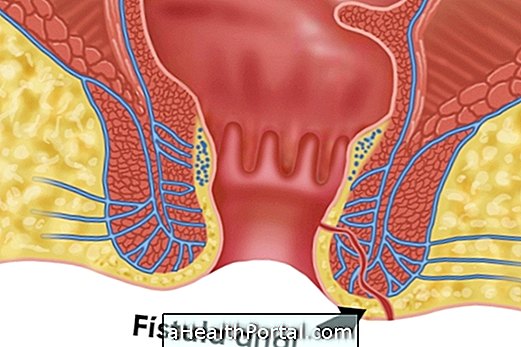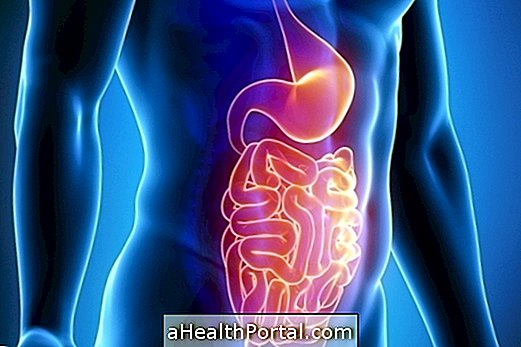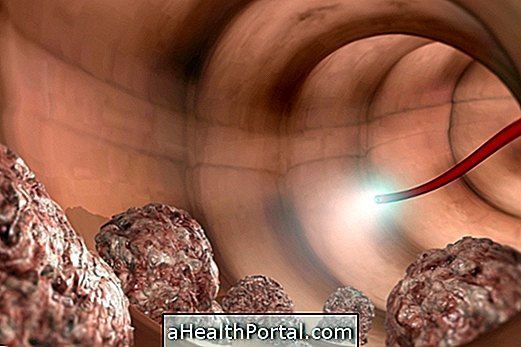The hiatus hernia corresponds to a small structure that forms when a portion of the stomach passes through a hole called a hiatus, which is found in the diaphragm and usually should only allow the passage of the esophagus. Understand what a hernia is and why it is formed.
The causes of hiatal hernia formation are still not well understood, but obesity and excess physical activity may favor the hernia. In the presence of this type of hernia, the stomach is not completely closed, facilitating the return of the acid content to the inside of the esophagus and leading to the occurrence of gastroesophageal reflux and the sensation of burning in the throat.
The diagnosis of hiatal hernia can be made by the physician after the observation of symptoms of reflux, although the only way to confirm the existence of the hernia is by doing an endoscopy or a CT scan, for example.

Symptoms of hiatal hernia
The symptoms of hiatal hernia usually appear about 20 to 30 minutes after meals and tend to disappear shortly after, with the main symptoms being:
- Heartburn and burning throat;
- Difficulty swallowing;
- Dry and irritating cough;
- Frequent bitter taste;
- Bad breath;
- Frequent seizures;
- Sensation of slow digestion;
- Willingness to vomit frequently.
These symptoms may also be indicative of reflux, so it is common for gastroesophageal reflux to be diagnosed prior to hiatal hernia. Learn more about the symptoms of hiatal hernia.
How is the treatment done?
The best treatment option for hiatal hernia is weight loss, and most of the time it is necessary to adjust to the diet and avoid eating too fat or too spicy foods and ingesting alcoholic beverages. These foods are more difficult to digest and can worsen the symptoms of the disease and should always be avoided.
In addition, it is important to have light meals, with little quantity and eat every 3 hours to treat the inconveniences caused, as well as avoid lying down right after eating and not drinking liquids during meals. Take advantage to see other important cares that also help lessen the hassle.

When surgery is indicated
Surgery for hiatal hernia is indicated only in more severe cases and when feeding care is not enough to alleviate the symptoms caused by gastroesophageal reflux or when there is a strangulation of the hernia, for example.
This type of surgery is done through laparoscopy under general anesthesia and the total recovery takes about 2 months. Understand how surgery for gastroesophageal reflux is done.
Possible causes
Hiatus hernia can be caused by too much physical activity that requires too much force, such as weight lifting, for example, in addition, excess weight, belly bumps and chronic cough can also cause hiatal hernia. However, in most cases, it is not possible to identify what led to this change.





















